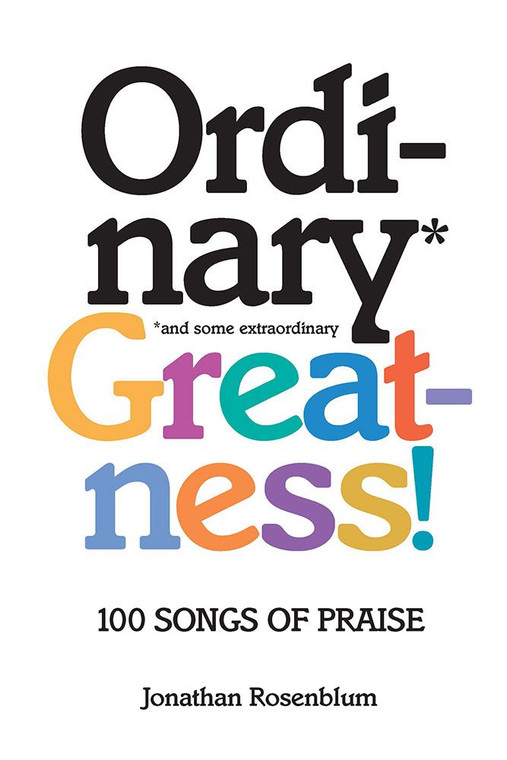
The subject of this volume is ordinary lives lived with dignity, for such lives are often the most meaningful and instructive.
Middlemarch: “The growing good of the world is partly dependent on unhistoric acts, and that things are not so ill with you and me as they might have been is half owing to the number who lived faithfully a hidden life and rest in unvisited tombs.”
In the Author’s Preface, Jonathan Rosenblum, describes these one hundred pieces, written over three decades, as forming a sort of ethical will to his descendants, both those now living and those yet unborn. The message: Look for the good in every person, learn from that good, and use the wisdom thus attained to improve your own life and the lives of everyone with whom you come into contact.
The verse in Proverbs (27:21) reads ish l’fi m’halalo. Those words are generally understood to mean that a person is judged according to the praises that others say of him. But Rabbeinu Yonah offers another understanding: A person is defined by what he praises.
These pieces, writes Rosenblum, “are my songs of praise.”





